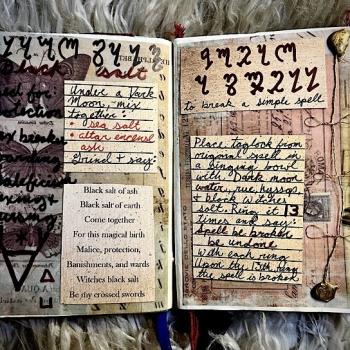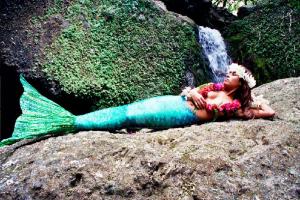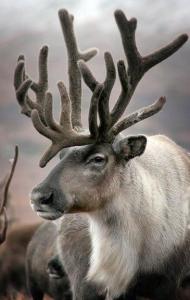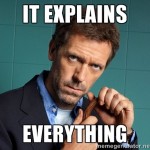I am a label junkie. If you’ve been following this blog for any length of time, you probably have realized that. I am obsessed with drawing distinctions, circumscribing every social phenomena, and labeling it with an -ism. Anyway, I’ve discovered a great new label: Post-Pagan.
Glen “Fishbowl” Gordon maintains the PostPagan blog and recently guest posted at HumanisticPaganism.com about process theology, religious naturalism, and transpersonal psychology — everything I love. But Gordon’s contribution to HP is just a taste of what he is developing over at his own site, PostPagan.com, where he writes about Unitarian Universalism, Religious Naturalism, and what he calls “Bioregional Animism”. And he calls this Postpaganry, (formerly Postpaganism … Gordon doesn’t like -isms). I noted that although Gordon says Postpaganry doesn’t belong to anybody, he has trademarked the name, and I can’t blame him. It’s a great name! Is the double entendre intentional? (post = after; post = write on a blog)
I wish I had come across PostPagan before I wrote my series on American Neopaganism. Gordon rejects the Neopagan label for all the same reasons I struggle with it: anthropomorphism, supernaturalism, dualistic thinking (matter and spirit), magic as a projection of the human will, romanticizing nature, and neglecting the very places where we stand. He distinguishes Neo paganism(heavily influenced by esotericism and Wicca) from Eco-Paganism (which he relates to Deep Ecology and animism). While I still hope to rescue the term “Neopagan” from the esoterics, I totally understand Gordon’s motivation in this regard.
I am still working my way through the prior posts, but there are a couple of areas that PostPagan explores that jump out at me as really cutting edge and critical to rescuing this this thing (whatever we’re calling it) from the esoterics. The first is what I would call “Backyard Paganism” (which is part of what Gordon calls “Bioregional Animism“), distinguished from “the cosmic-humanism of mainstream neo-paganism”. It is a challenge to take the “nature religion” label seriously, where “nature” means, not some romanticized capital-N “Nature”, but what is right outside your door, right under your feet, and right in the air you are breathing right now. It is a kind of anti-cosmopolitan call to become rooted in the immediate, specific place where we dwell.
The second is an evolving, but radical notion of polytheism which combines (1) a concept of “deity”, not as a thing or a person, but as a relationship with natural phenomena, and (2) the search for “transpersonal” experience , which is the mystical experience of the “More Than Human”, but which is not supernatural. There is a lot packed in there and I can’t wait to see how Gordon works through it!
The two areas I diverge with Gordon are (1) his disdain for Jung and (2) his suspicion of introspection. I understand both, I think. Regarding the first, I agree that Jung is (ab)used my many Neopagans as another way of avoiding contact with nature. In this way, “Nature” becomes just another metaphor in an imaginary Jungian pantheon. I think this is an abuse of Jungian theory, though, and reject the “archetype = metaphor” equation. But that is for another post. Suffice it to say that Jung and nature religion are not incompatible. If you’re interested, check out The Earth Has a Soul: C.G. Jung on Nature, Technology & Modern Life.
As to the second issue, introspection, I feel this is related to the first. Introspection, or “navel-gazing”, as Gordon calls it, can be escapist, and often is. However, I have come to suspect that there is a connection between seeking to relate to the inner wild landscape of our psyche and relating to the outer wild landscape of the world. These two “natures” are connected I believe. This connection is what I call “soul”. This is something that Bill Plotkin explores in his book, Soulcraft: Crossing into the Mysteries of Nature and Psyche. But that is also for another post.
Anyway, you must go to PostPagan.com and check it out! Let me just end with this post with a quote from the site which wonderfully summarizes of what Postpaganry is. Gordon writes:
“For me, postpagan is about being relevant to the here and now, whenever and wherever that may be. It is an expression of life after neopaganism. It is about pushing the premise of nature-based spirituality and religion to its logical conclusion. It is about relating to the land where you live with as little appropriation as possible. It is about creating religious traditions, symbols, and mythology, which reflects current (scientific) understanding of the natural living-world. It is about exploring non-dual and holistic thinking within the context of post-modernity and the western-world.
“[…] Postpaganry is the moment when you are the most alive and aware of the world around you. postpaganry is when that moment sweeps you away in to spontaneous ceremony and celebration of life within and all around you. Postpaganry is the place where you feel the most at home, where you connect to the natural living-world in deep and intimate ways. A postpagan is someone who looks for the sacred everywhere they go. A postpagan takes breath as sacrament. A postpagan can be anybody at any time. A postpagan is someone who feels with their whole being, and that scares them and elates them at the same time.”















